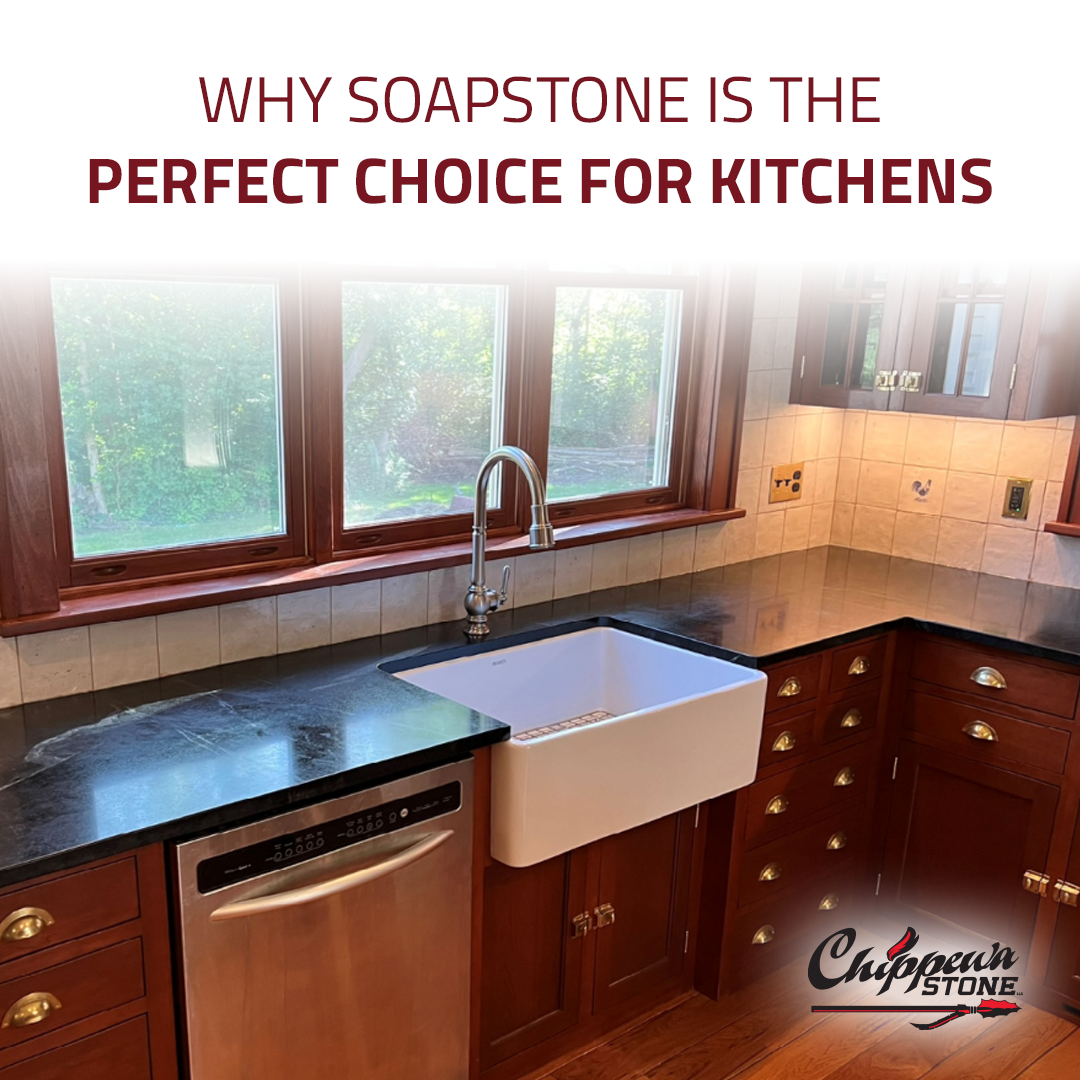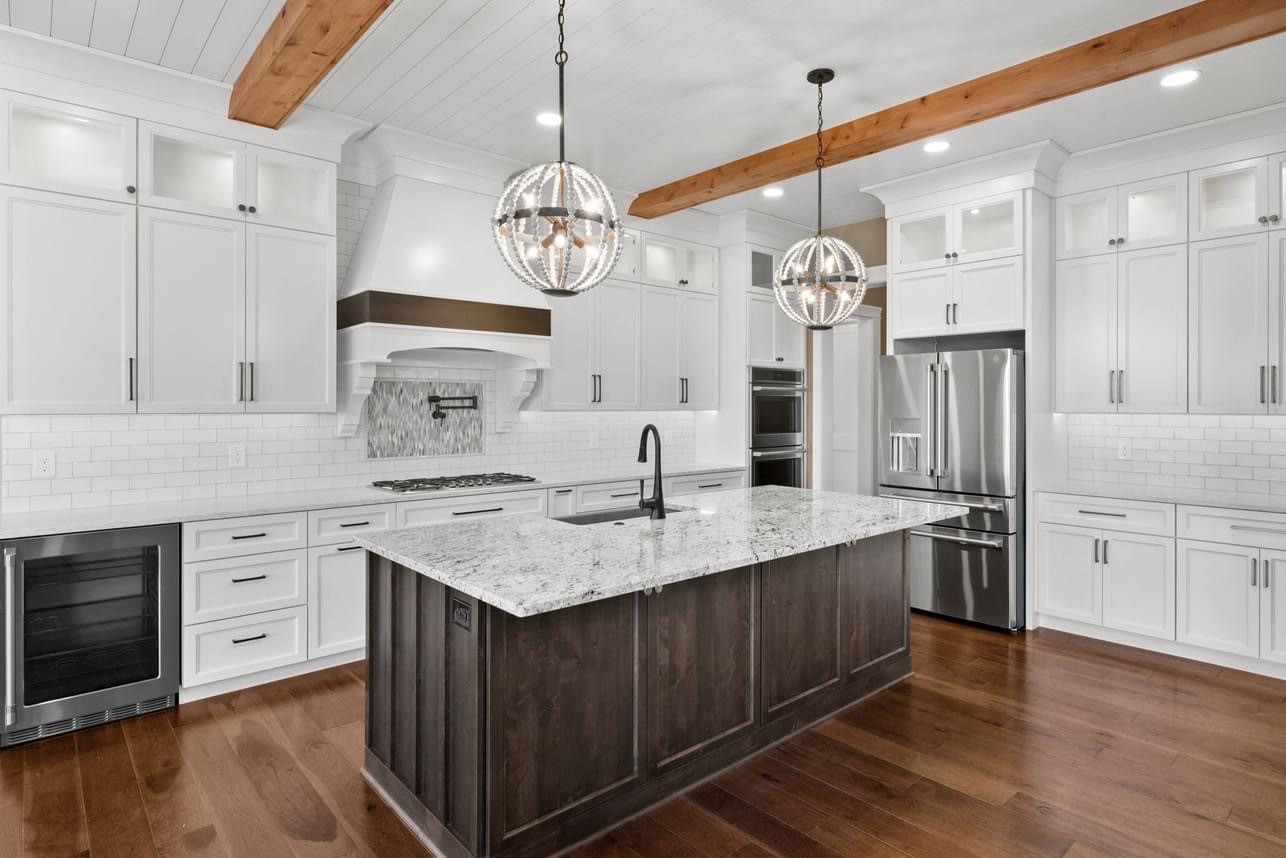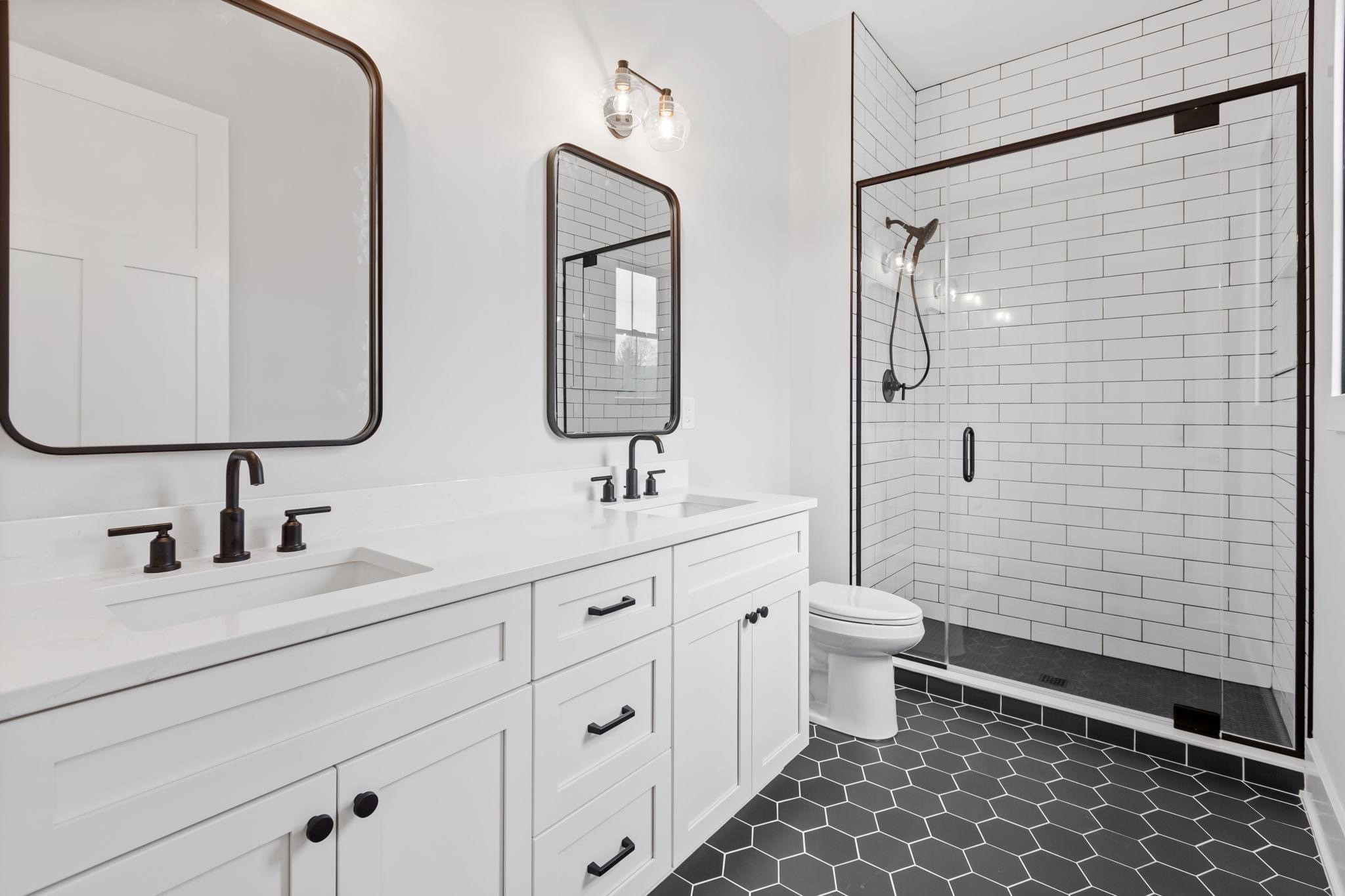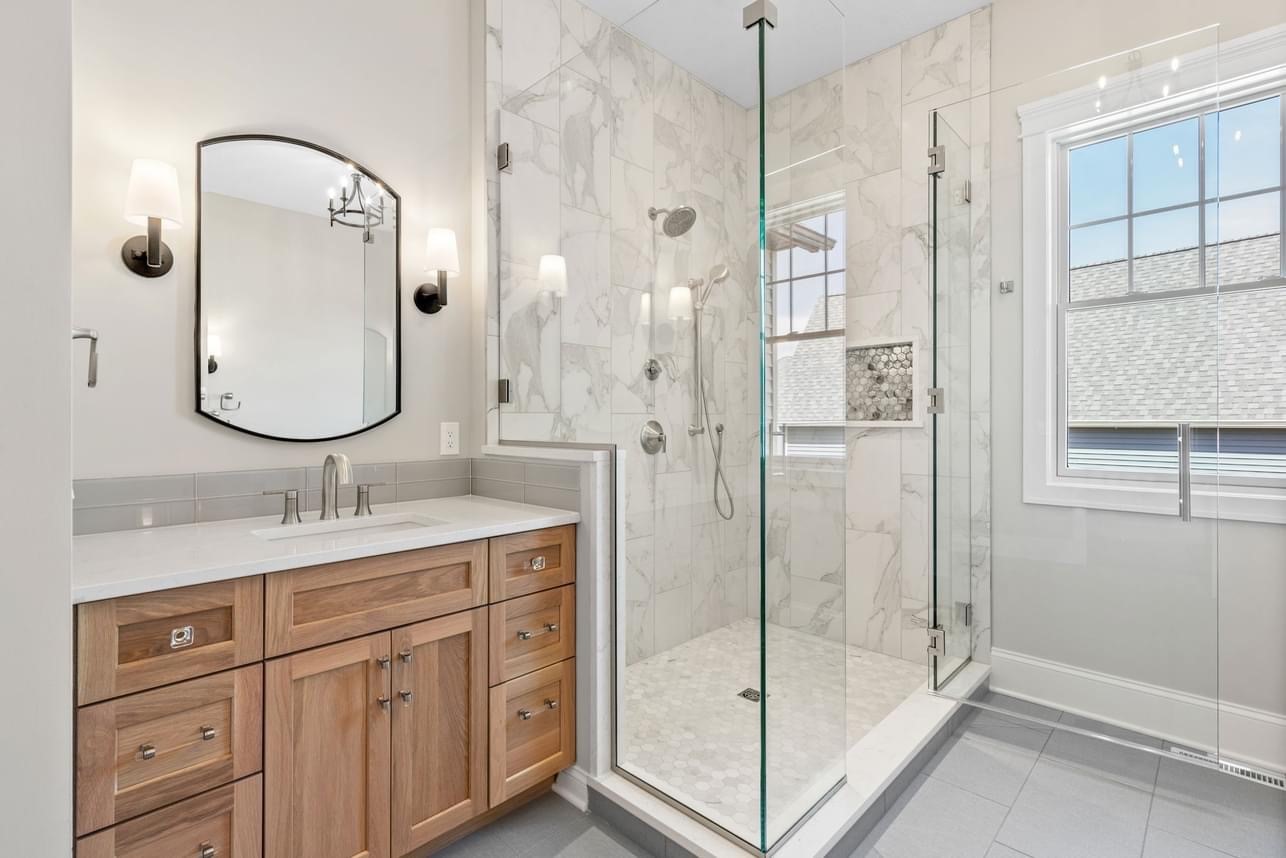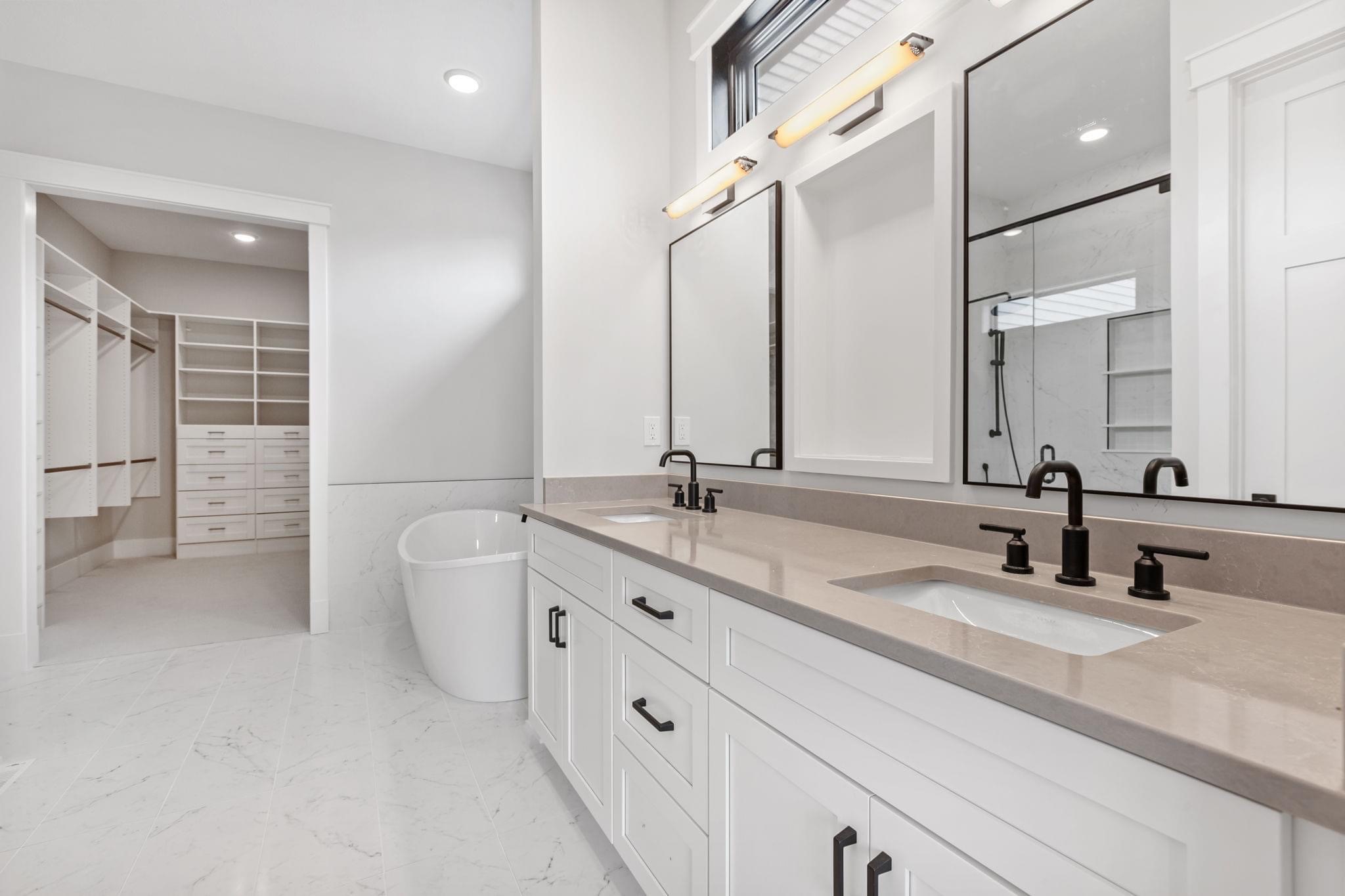When it comes to designing a kitchen that combines beauty, durability, and functionality, selecting the right countertop material is essential. While granite and quartz often dominate conversations about countertops, there is another contender rapidly gaining popularity: soapstone. Known for its unique aesthetic and impressive durability, soapstone offers a distinctive look and feel that’s well-suited to both traditional and modern kitchens.
In this blog, we’ll dive into what makes soapstone the perfect choice for kitchens, exploring its benefits, maintenance, installation considerations, and style options. By the end, you’ll have a clear understanding of why soapstone might be the ideal fit for your next kitchen renovation.
1. What is Soapstone?
Soapstone is a natural stone primarily composed of talc, magnesium, and other minerals, giving it a soft, smooth texture and a unique, tactile quality that sets it apart from harder stones like granite and quartz. Its density makes it resistant to staining, moisture, and bacteria, a significant benefit for any kitchen space. Soapstone’s color palette ranges from light gray to deep charcoal, often with soft veining that adds character and visual depth.
Unlike many other stones, soapstone has a matte finish, which brings a subtle sophistication to the kitchen, especially appealing in minimalist or industrial designs. Because it’s a non-porous material, soapstone is naturally resistant to bacterial buildup, making it a top choice for those prioritizing hygiene in their kitchens.
2. Benefits of Soapstone in the Kitchen
Soapstone’s unique qualities make it an exceptional material for kitchen surfaces. Here are the key benefits it offers:
- Durability and Longevity: Soapstone is incredibly durable, able to withstand everyday kitchen use with ease. While it may be softer than granite, it resists scratches, chips, and stains effectively, making it highly resilient for high-traffic areas. In fact, with proper care, soapstone can last decades.
- Heat Resistance: Soapstone is one of the most heat-resistant natural stones, meaning you can place hot pots and pans directly on its surface without causing burns or damage. This property is particularly advantageous in kitchens where cooking is frequent, and it eliminates the need for trivets or heat pads.
- Non-Porous Nature: Because soapstone is non-porous, it does not absorb liquids, reducing the risk of staining from common kitchen substances like wine, oils, and acidic ingredients. Its non-porous nature also keeps bacteria from penetrating the surface, contributing to a more hygienic kitchen.
- Low Maintenance: Soapstone requires minimal upkeep compared to other natural stones like marble and granite. There’s no need for sealing, and cleaning is easy—typically, soapstone only needs mild soap and water.
- Unique Aesthetic Appeal: Soapstone’s matte finish and natural veining bring a soft, understated beauty to the kitchen. Over time, the stone may darken naturally or can be enhanced with mineral oil to deepen its color, giving it a richer, more dramatic look.
3. How Soapstone Compares to Other Stones
To fully appreciate the appeal of soapstone, it helps to compare it to other popular countertop materials like granite, marble, and quartz.
- Soapstone vs. Granite: Granite is known for its hardness and durability, and while it’s resistant to scratches and heat, it requires periodic sealing to protect against stains. Soapstone, on the other hand, does not need sealing, and while softer, it’s highly resistant to heat and stains naturally.
- Soapstone vs. Marble: Marble is prized for its luxury and elegance but is more susceptible to scratching and staining, particularly from acidic substances. Marble requires more maintenance, including sealing and special cleaning products, whereas soapstone’s non-porous structure makes it more resilient and easier to maintain.
- Soapstone vs. Quartz: Quartz is engineered, making it consistent in appearance and highly durable. However, it can be sensitive to heat and does not offer the same natural, unique veining as soapstone. Soapstone’s heat resistance and natural beauty give it a distinctive edge, especially for homeowners seeking an organic, one-of-a-kind look.
4. Maintenance and Care for Soapstone Countertops
One of the reasons soapstone is perfect for kitchens is its minimal maintenance requirements. While granite and marble require regular sealing to maintain their durability, soapstone is naturally non-porous and needs no such treatment. Here’s a breakdown of what it takes to care for soapstone:
- Daily Cleaning: Simply use a mild dish soap and water. Avoid harsh chemicals and abrasive scrubbers, which can damage the surface over time.
- Mineral Oil Application: Some homeowners choose to apply mineral oil to enhance soapstone’s color and veining. While this is not required, it can bring out a richer, darker color. This process is simple: apply a small amount of mineral oil with a soft cloth and wipe off any excess.
- Buffing Out Scratches: If you notice any light scratches, these can typically be buffed out with fine sandpaper. After buffing, you can reapply mineral oil to even out the color.
- Avoiding Acidic Cleaners: Acidic or abrasive cleaners can damage the soapstone, so it’s best to stick to mild, pH-neutral cleaning solutions.
The ease of maintenance makes soapstone an ideal choice for busy kitchens where convenience and cleanliness are paramount.
5. Sustainability and Eco-Friendliness
More homeowners are considering the environmental impact of their materials, and soapstone is a solid choice for those interested in sustainability. Because it’s a natural stone, soapstone is eco-friendly, requires minimal processing, and has a long lifespan, reducing the need for replacement. Its durability means it doesn’t need to be replaced frequently, and since it doesn’t require sealing or harsh chemical cleaners, it has a smaller environmental footprint compared to other countertop materials.
6. Styling Soapstone in Modern Kitchens
Soapstone’s natural beauty and muted color tones make it incredibly versatile. Here are some ways to incorporate it into various kitchen styles:
- Industrial Modern: Soapstone pairs beautifully with metal fixtures, minimalist cabinetry, and exposed shelving. Its matte finish complements the raw, edgy look of industrial-style kitchens, while its durability matches the high functionality required in these spaces.
- Farmhouse and Rustic Kitchens: Soapstone adds warmth and texture to farmhouse kitchens, especially when paired with wood cabinets, open shelving, and vintage accents. Its natural appearance enhances the charm and authenticity of rustic designs.
- Minimalist and Scandinavian: For minimalist kitchens, soapstone’s understated color and texture offer a serene, clutter-free aesthetic. Scandinavian designs benefit from soapstone’s functionality and clean lines, which contribute to a warm yet pared-down look.
- Classic and Traditional: Soapstone can be equally at home in traditional kitchens, adding an elegant touch that complements classic cabinetry and intricate tile work.
7. Cost Considerations
Soapstone is generally comparable in price to granite and quartz, although prices can vary based on factors like stone thickness, customization, and installation complexity. While it may be slightly more expensive than some basic countertop materials, the durability, ease of maintenance, and timeless beauty of soapstone make it a worthwhile investment.
8. Is Soapstone Right for Your Kitchen?
Whether soapstone is the right choice for your kitchen depends on your lifestyle, design preferences, and maintenance expectations. Here’s a quick checklist to determine if soapstone is a good fit for your kitchen:
- You want a natural stone with low maintenance requirements.
- You appreciate a matte finish and subtle, organic veining.
- You prioritize heat resistance and are looking for a countertop that can handle hot pots and pans.
- You prefer a non-porous material that’s resistant to bacteria and staining.
- You’re looking for a durable countertop that ages gracefully and can last for decades with minimal upkeep.
If these qualities align with your vision for your kitchen, soapstone is likely an ideal choice.
Soapstone – The Perfect Kitchen Countertop Solution
With its blend of natural beauty, durability, and ease of care, soapstone is truly a remarkable option for kitchen countertops. It brings warmth, elegance, and practicality, making it perfect for everything from family kitchen to chef-worthy cooking spaces. Whether you’re drawn to its unique aesthetic or impressed by its low maintenance requirements, soapstone offers a balance of form and function that’s hard to match.
At Chippewa Stone, we’re here to help you find the perfect soapstone countertop to transform your kitchen. Contact us today to learn more about our soapstone options and how we can bring your kitchen vision to life with the timeless beauty of natural stone.

